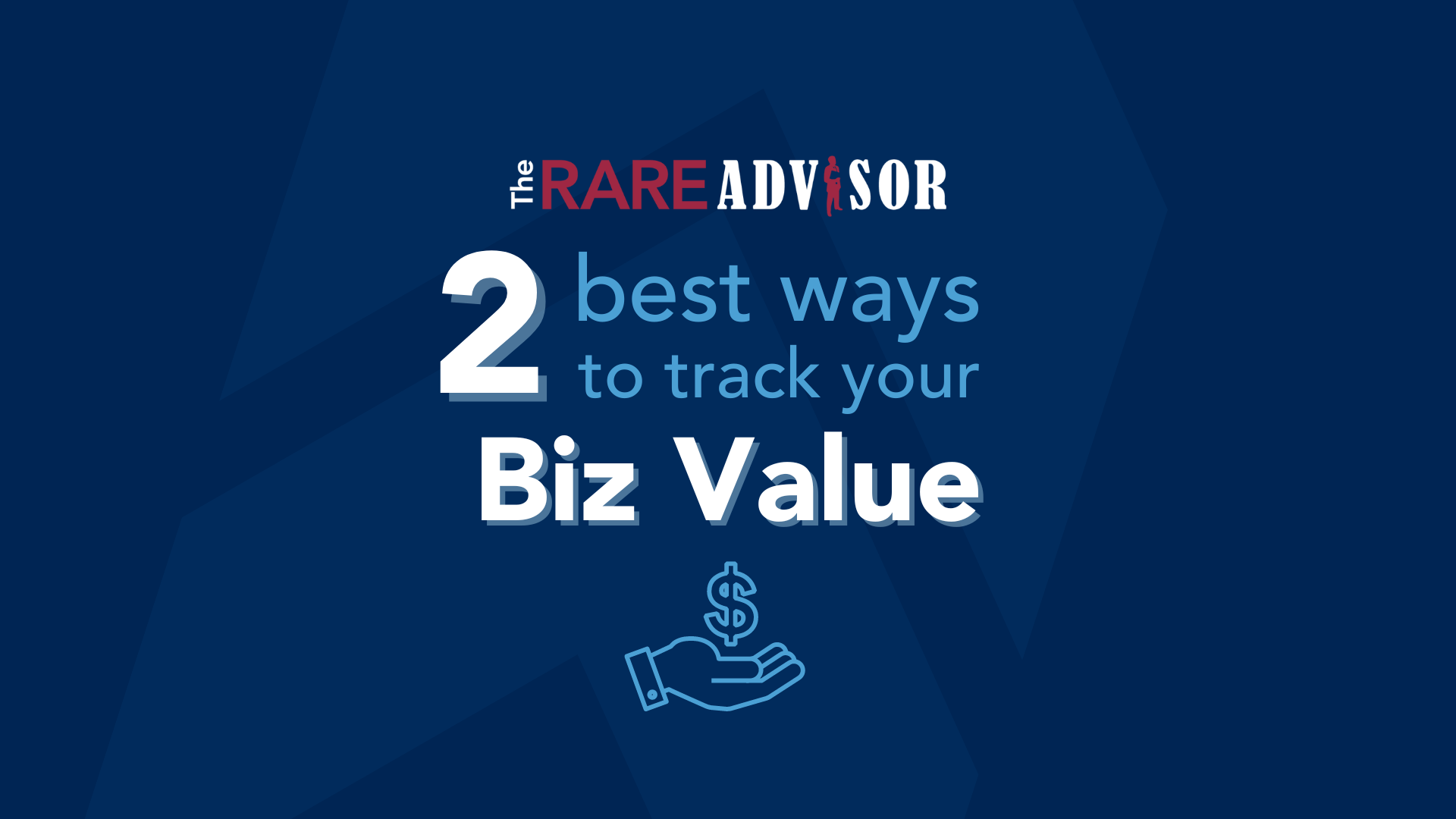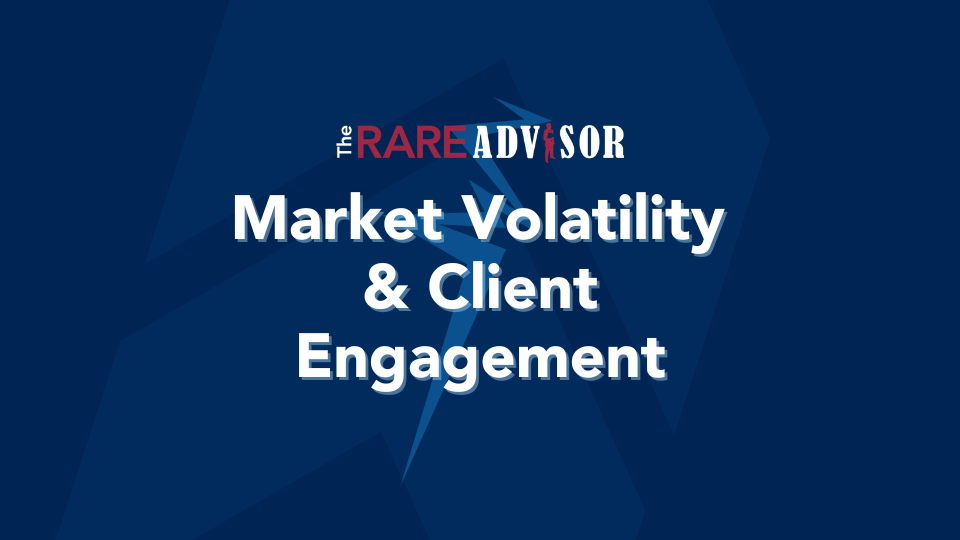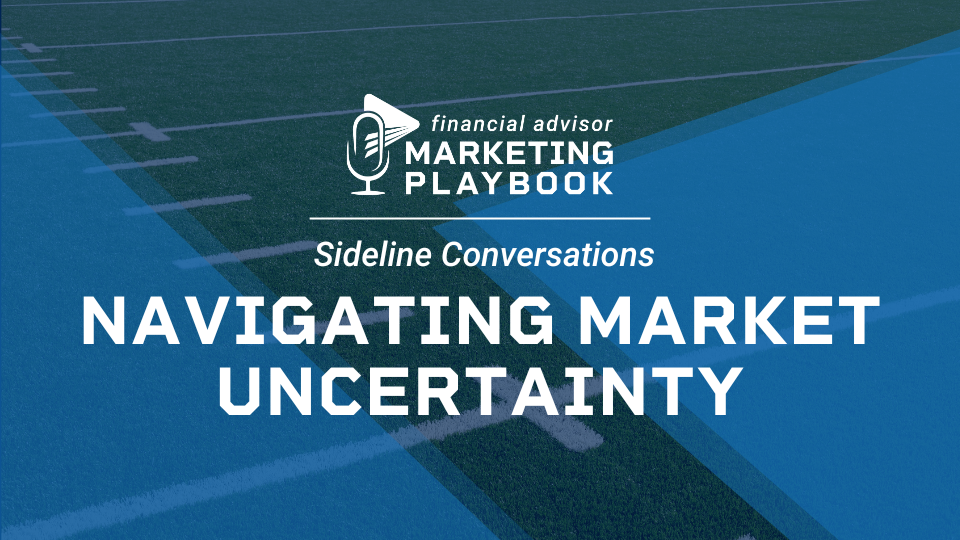The RARE Advisor: Two of the Best Ways to Track Your Business Value

They’re the things an outside investor would look at, and they’re also the same things that you should look at. In this episode of The RARE Advisor, we’ll talk about the two best ways to track your business value and the growth of your company.
Do you know the Blue Book value of your practice? I think it's something you should track on a regular basis.
We actually provide it quarterly for the advisors who work with USA Financial. Because we have so much data on their production and their business, we're able to actually create a Blue Book Valuation for them automatically on a quarterly basis. But if you don't have that privilege at your fingertips, you can reach out to USA Financial and we'll help you identify your Blue Book value. We have a tool that we've created that will calculate it for you. It's very similar to the Blue Book value on your vehicle in that it's designed to get you into the ballpark without having to do a full-blown appraisal. We normally find that we are within 1-3% of a full blown appraisal by simply executing a Blue Book calculation on an advisory practice. It's very powerful and very accurate. I encourage you to look at your Blue Book value on a quarterly basis as if it's your stock value, because it basically is - you're not a publicly traded company, so you don't have the ability to go and look at your stock price to see what your operation is being valued at. But this allows you to essentially do that. Some advisors use it for their own personal goals and growth, some use it for their corporate team to identify goals and growth. I think it's a great way to to build your business in the right way rather than just having sales goals and new client goals. Not that there's anything wrong with those things, but what really matters is that you are building the value of the business and this will help you track that.
Additionally, you're going to want to look at your EBITDA (earnings before interest, taxes, depreciation and, amortization). So kind of your net income, but EBITDA is the correct terminology. If you're not familiar with that, your accountant will be. Or you can search online to see how it all works. In a financial advisory practice, you should be coming in between 25-30% dividend. If you're below that, then you need to look at how you have your business structured. Now, I know that many advisors have basically no EBITDA, because they don't pay themselves on a regular basis. They get to the end of a month or the end of a quarter and they pull the money out of the practice, almost like it's a commission if you will, or a bonus, and they just kind of operate based on "what's left over goes to the owner". And that's okay, there's nothing wrong with that. But within that you should still have a shadow EBITDA that you're able to calculate to know that "hey, if I took X amount out, if I'm paid X and everybody else has now been paid, then here's my 25-30% EBITDA that I'm wanting to stay within that range".
If you are looking to get value on your practice, that's important. If you're looking to have a merger, an acquisition, a succession, or a transition at some stage, that's important. If you're looking to establish a lending relationship, that's important. So you do want to track these two things:
- Track the Blue Book value of your practice, because it's quick and it's easy. And there's really no better way to get a very quick view of what the business is worth to you.
- Track your EBITDA either in real life or as a shadow EBITDA so that you know how your practice is being valued as an actual business.
--
The RARE Advisor is a business model supercharged by Recurring And Repeatable Events. With more than thirty years of working with and coaching successful advisors, host Mike Walters (along with other leaders in the industry), discusses what it takes to grow a successful practice. With the aim of helping financial professionals and financial advisors take their business to the next level, Mike Walters shares insights and success stories that make a real impact. Regardless of the stage of your practice, The RARE Advisor will provide thoughtful guidance, suggestions for developing systems and processes that work, and ideas for creating an authentic experience for your clients.
The RARE Advisor is also a podcast! Subscribe today via Apple Podcasts, Google Podcasts, or your preferred podcast listening service for easier on-the-go listening.
Author Info

Mike Walters is the Chief Executive Officer (CEO) of USA Financial, leading the firm since its inception in 1988. Mike is committed to...
Related Posts

Connect with Clients via a Mid-Year Financial Wellness Update
As you continue to elevate your client experience and curate a high-touch approach with your best clients, consider adding the Mid-Year Financial Wellness Update as an intentional and strategic touchpoint.

Deepen Client Relationships & Drive Advocacy During Turbulent Markets
Turn market turbulence into opportunities to strengthen client trust and expand your reach. Discover how to proactively engage with your best clients, offering reassurance and highlighting your value-added services. Learn best practices for unified messaging across your team and how to leverage these moments to deepen client relationships and drive advocacy through services like the "sounding board" introduction.

Market Volatility Conversations: What Your Clients Need to Hear
In this episode of Financial Advisor Marketing Playbook, I’m joined by Senior Advisory Business Consultant Kevin Roskam to discuss navigating market volatility with clients. With markets experiencing recent fluctuations, we’ll dive into understanding investor sentiment, differentiating between working and retired clients, and addressing common advisor mistakes.

Connect with Clients via a Mid-Year Financial Wellness Update
As you continue to elevate your client experience and curate a high-touch approach with your best clients, consider adding the Mid-Year Financial Wellness Update as an intentional and strategic touchpoint.

Deepen Client Relationships & Drive Advocacy During Turbulent Markets
Turn market turbulence into opportunities to strengthen client trust and expand your reach. Discover how to proactively engage with your best clients, offering reassurance and highlighting your value-added services. Learn best practices for unified messaging across your team and how to leverage these moments to deepen client relationships and drive advocacy through services like the "sounding board" introduction.

Market Volatility Conversations: What Your Clients Need to Hear
In this episode of Financial Advisor Marketing Playbook, I’m joined by Senior Advisory Business Consultant Kevin Roskam to discuss navigating market volatility with clients. With markets experiencing recent fluctuations, we’ll dive into understanding investor sentiment, differentiating between working and retired clients, and addressing common advisor mistakes.

